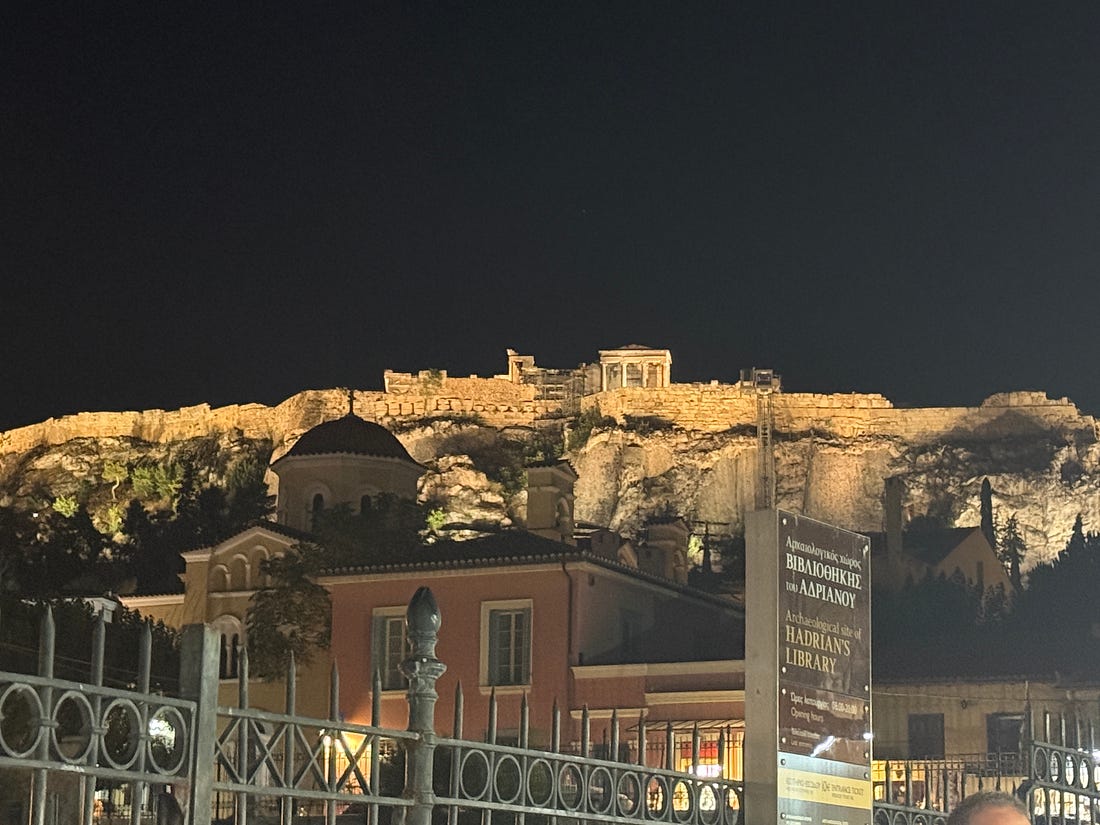First of all, my apologies for not posting this in my usual Friday slot. It’s been a busy old week, with a great event in London at the Commonwealth Secretariat, co-hosted by the Association of Business Historians – more about that later. And I spent my Friday (and the rest of the weekend) at a music festival, which is very enjoyable, so I am slightly distracted. How historians make sense of the pastHowever, let's return to more academic matters, specifically, abductive approaches. My husband currently works at a political risk advisory firm, so when I use the word ‘abduction’, I now mentally think ‘not kidnapping’ rather than ‘not induction’. But as this is a post reflecting on my experience of attending the European Group of Organization Studies in Athens, where there were two tracks dealing with the past, albeit in different ways, it was definitely the latter kind! My primary affiliation was to Track 41 “Tracing the Past”, which took a broadly methodological approach to different types of historical research. Through my co-author, I also took part in Track 51 “Leveraging the Past”, which focused more on collective memory and organizational remembering. Both tracks organized a joint history walk through the centre of Athens at the end of the conference, which was an inspired idea. It's worth highlighting that neither track explicitly referenced abductive approaches to research; this was the theme of one of the sub-plenaries on the second day. But, as both history and memory work backwards, I found the sub-plenary’s conceptual focus quite revealing when reflecting on how research in both tracks was presented, and how participants engaged with the research. Fundamentally, both tracks saw quite a few presentations of rich data and analysis, and questions about the framework. Certainly, track 41, in which I participated for most of the conference, frequently discussed the suitability of different conceptual frameworks. Corporate diplomacy, violence and the slave tradeMy presentation, on a diplomatic incident on the West African coast during the slave trade, focused on violence and how it matters to, and is employed by, organizations. Not as widely theorised as one might think, and I focused quite a bit on the different conceptual frameworks I was playing around with. I did not feel any of them were a particular good fit for the kind of data/case/story my co-author and I had reconstructed from the archives, so much of the alternative conceptualisations I presented on our behalf were very fast and loose... Keep reading with a 7-day free trialSubscribe to Organizational History Network to keep reading this post and get 7 days of free access to the full post archives. A subscription gets you:
|
Sunday, 13 July 2025
EGOS 2025 Reflections
Subscribe to:
Post Comments (Atom)
We've Been Thinking About Mental Health All Wrong...
The Ecosystemic Model Explained ͏ ͏ ͏ ͏ ͏ ͏ ͏ ͏ ͏ ͏ ͏ ͏ ͏ ͏ ͏ ͏ ...
-
Online & In-Person ͏ ͏ ͏ ͏ ͏ ͏ ͏ ͏ ͏ ͏ ͏ ͏ ͏ ͏ ͏ ͏ ͏ ...
-
Dear Reader, To read this week's post, click here: https://teachingtenets.wordpress.com/2025/07/02/aphorism-24-take-care-of-your-teach...


No comments:
Post a Comment